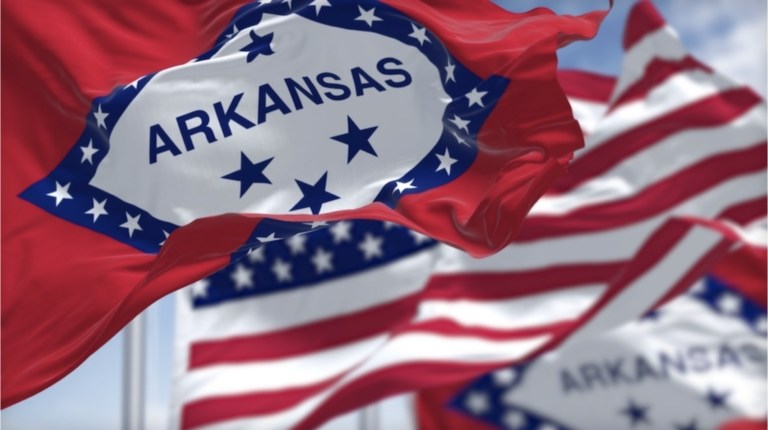LITTLE ROCK, Ark. — The U.S. District Court for the Western District of Arkansas granted Thursday a preliminary injunction blocking the Arkansas government from enforcing the state’s new sweeping “Social Media Safety” act, which was scheduled to take effect today, until its merits are litigated.
Tech trade group NetChoice sued Arkansas’ Republican Attorney General Tim Griffin over the state’s Act 689, which bans minors from using social media platforms without proof of parental consent, “with a number of confusing exceptions,” Reason’s Elizabeth Nolan Brown reported.
The decision by Judge Timothy L. Brooks coincided with a similar injunction against Texas’ anti-porn age verification and mandatory labeling law, also scheduled to be enacted today.
As XBIZ reported, a Texas court granted on Thursday a preliminary injunction to Free Speech Coalition (FSC) and its co-plaintiffs, blocking the Texas Attorney General from enforcing HB1181 while the case is litigated
Chris Marchese, director of the NetChoice litigation center, commented, “We’re pleased the court sided with the First Amendment and stopped Arkansas’ unconstitutional law from censoring free speech online and undermining the privacy of Arkansans, their families and their businesses as our case proceeds. We look forward to seeing the law struck down permanently.”
Nolan Brown explained that, “as with all such age verification laws, the Arkansas measure would invade the privacy of all social media users — including adults — who would be forced to turn over official IDs in order to speak or access information online. It would also infringe on the rights of minors to share and access constitutionally protected speech.”
Judge Brooks wrote in his decision that Act 689 was “unconstitutionally vague because it fails to adequately define which entities are subject to its requirements.”
More Brits Weighing in to Curtail U.S. Free Speech
In yet another instance of U.S. anti-porn politicians importing British subjects to share their opinions on American Free Speech issues, the Arkansas government calledU.K. age verification proponent Tony Allen to testify in support of Act 689.
Though termed a “constitutional monarchy,” the U.K. has no written constitution and no equivalents to the U.S. Bill of Rights, First Amendment or codified Section 230 protections. Another sweeping “child protection” internet legislation, California’s controversial AB 2273, the so-called “Age-Appropriate Design Code Act,” was drafted and lobbied for by British noblewoman and filmmaker, the Baroness Beeban Kidron.
Weighing in on the Arkansas act, Allen attempted to convince the judge of the merits of U.K.’s controversial and long-term stalled Online Safety Bill, which the court was told “is expected to pass the Houses of Parliament sometime next month.”
Allen explained that the U.K. bill, unlike the Arkansas act, mandates that “age verification requirements will be triggered by particular content, called ‘primary priority content,’ which the U.K. has determined is damaging or harmful to minors.”
Examples of the UK’s “primary priority content,” he continued, include “adult pornography and information about suicide, self-harm and dieting.”
After confusingly comparing the internet and platforms to “a mall,” Allen testified that “in the U.K., online parental consent [will be] only required when a minor seeks to perform some action online that the law forbids, such as enter into a contract for the sale or purchase of goods. By contrast, Act 689 will require social media companies to obtain ‘express consent of a parent or legal guardian’ much more frequently — whenever an Arkansas minor seeks to open a social media account — and to use procedures reliable enough to ensure that these companies avoid incurring civil and criminal penalties.”
Implementing these procedures, Allen warned, will not be easy. “I think the biggest challenge you have with parental consent is actually establishing the relationship, the parental relationship. It’s easy to say that this person who is giving the consent is, let’s say, in their 40s, versus the person that’s asking for the consent being under 18. But actually establishing that that is a parent or a legal guardian, that’s the challenge with those processes.”


